
Is the Bundestag a toxic workplace? Around 150 MPs voluntarily resigned during the last parliamentary term. We discuss what this reveals about Bundestag as a workplace with Carlo Greß, co-author of the Bertelsmann study „Workplace Bundestag“, and with Yvonne Magwas, who herself did not stand for re-election and revealed her motives as part of the study. The study takes the trend as an opportunity to ask what characterises everyday life in parliament and what reforms could strengthen the Bundestag as a workplace. We talk about what keeps people in office and what motivated them to leave, what individual motives and structural reasons the study reveals, and whether the Bundestag is perceived as a modern workplace despite the abolition of its fax machines.
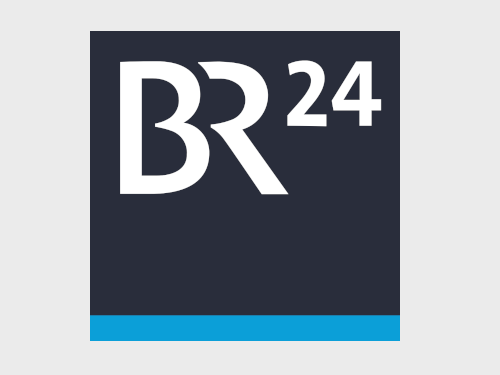
In over 2,000 cities and municipalities in Bavaria, city and municipal councils and mayors will be elected on 8 March. Rumours of possible election manipulation are already circulating in the run-up. Daniel Hellmann spoke to BR24 Faktenfuchs about this and explained which mechanisms ensure that the elections are nevertheless held safely.
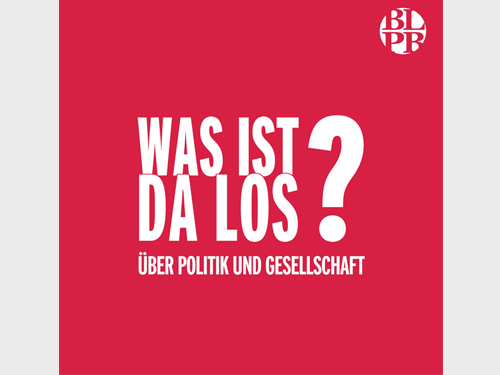
Coalition governments are the norm at both federal and state level. Oliver Kannenberg talks to Sabine Schmidt-Peter about fundamental and more in-depth aspects of coalitions in politics in the podcast by the Brandenburg State Centre for Political Education.
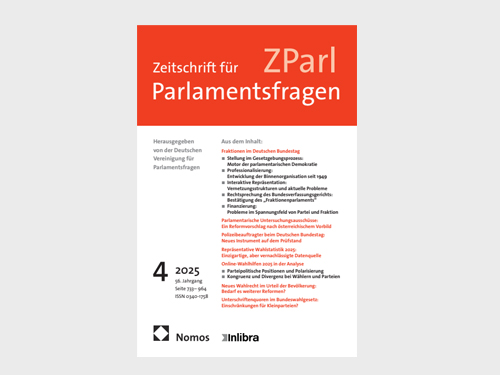
How have the political groups in the German Bundestag professionalised their organisational structure since 1949?
Danny Schindler and Theresa Pescht look at structures of vertical and horizontal division of labour as well as the scope and level of detail of internal rules. They also show that the parliamentary groups are professional democratic collective actors.

In the podcast by the Brandenburg State Centre for Political Education, Daniel Hellmann talks to Sabine Schmidt-Peter about what parties are, what their function is and what makes up the party system in Germany.
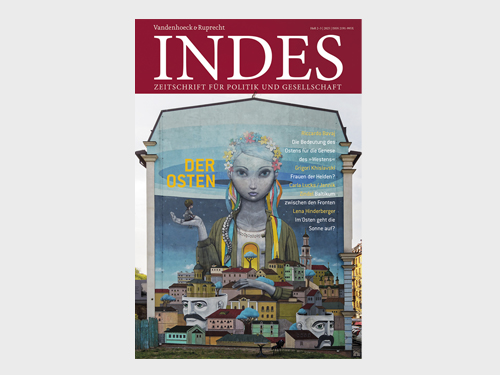
The participation of the member base in important internal party decisions has been a growing trend in Germany for several years. However, member surveys in the aftermath of coalition negotiations in particular have repeatedly attracted criticism. In their article, Danny Schindler and Oliver Kannenberg analyse the empirical trend, the underlying logic of action and the implications for coalition governments.
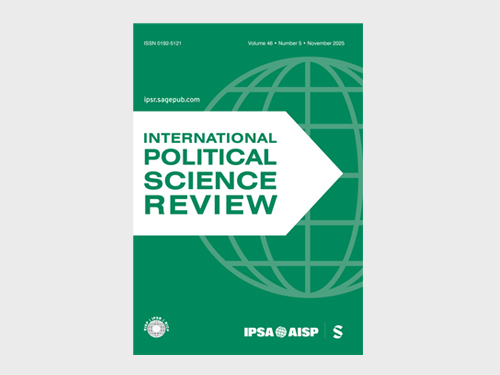
How hierarchical or participation-friendly is the decision-making process in parliamentary groups? Danny Schindler and Oliver Kannenberg have investigated this question in an international comparative study on parliamentary group rules of procedure.
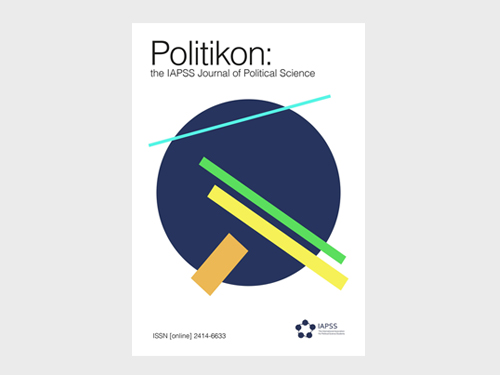
Never change a running system? In his essay, Kevin Settles sees AI systems in parliaments as part of a democratic "operating system" that stabilises procedures and processes information complexity. Digital infrastructures thus increase the resilience of parliamentary democracies, but at the same time emphasise the tension between efficient procedural control and open democratic negotiation.

What actually happens when a petition is submitted to the Bundestag? How is it decided which issues are dealt with in the Bundestag and what role does the Petitions Committee play in this? In this episode of the Zwischenruf podcast, we talk about how petitions work, what impact they can have and how they shape the relationship between citizens and parliament. Our guests are Angelika Pendzich-von Winter, former Head of the Petitions and Submissions Department at Bundestag, and Bundestag MP Corinna Rüffer, Chairwoman of the Petitions Committee for the Greens and member of the Labour and Social Affairs Committee. Together we will take a look behind the scenes of parliamentary petition work, from the first signature to a possible change in the law, and discuss the opportunities and challenges that lie in this special instrument of citizen participation.
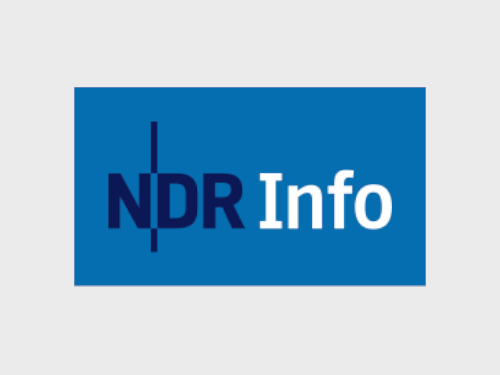
The issue of the pension (package) will probably accompany the government throughout the entire election period. Danny Schindler spoke to NDR about the role of the coalition committee and political leadership as compromise management.
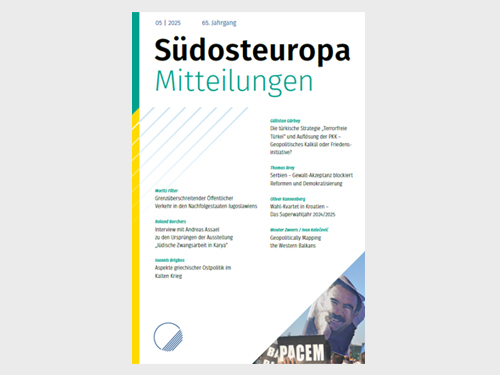
The citizens of Croatia were called to four different elections within 13 months. Oliver Kannenberg writes about the astonishing stability of the party landscape with the simultaneous dominance of two "strong men" in his article for Südosteuropa Mitteilungen

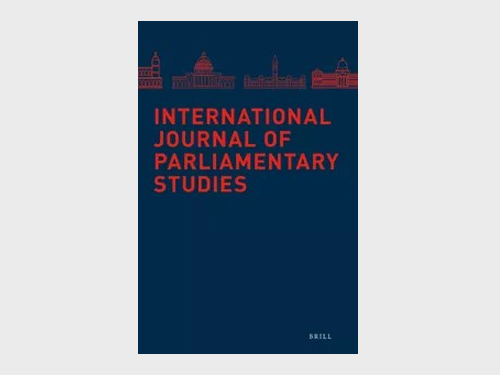
Institutional opportunities for the opposition to exert influence can help to counter authoritarian-populist governing parties. In the hands of an authoritarian-populist opposition, on the other hand, they can be utilised to disparage liberal institutions and parliamentary work. Danny Schindler discusses the resulting tension as an unavoidable consequence of any democracy that distributes institutional rights without knowledge of the future position holders.

Almost 40 per cent of eligible voters took part in the referendum on Munich's Olympic bid - a remarkable turnout rate for a referendum, says Daniel Hellmann in an interview with BR24. One of the reasons for this is that the city sent out postal voting documents directly alongside the election notification.

To a certain extent, a mandate is like a pregnancy - you don't really know what you're getting into beforehand. It is all the more difficult when you have to manage both at the same time, because MPs are not traditional employees. There is no parental leave, no regulated working hours, usually long official channels and many other smaller and larger problems. Following the recent appearance of Hannah Steinmüller (MP, Greens) and her son at the German Bundestag lectern for the first time and the announcement by Julia Klöckner as Bundestag President of parent-friendly reforms to parliamentary work, there has been some movement on the topic.
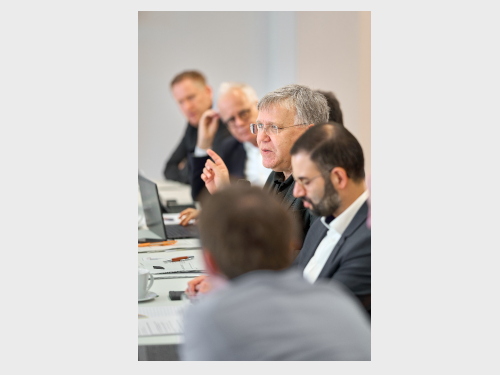
How can we ensure that elections are fair and transparent? This question was the focus of the conference "Electoral organisation counts!", which took place in Kiel in September. Researchers and practitioners discussed current challenges such as politicisation, disinformation and increasing public pressure on electoral bodies. Daniel Hellmann summarises the most important findings and comes to the conclusion that there is no uniform solution, but that a look at other countries can provide valuable impetus for a resilient electoral organisation.
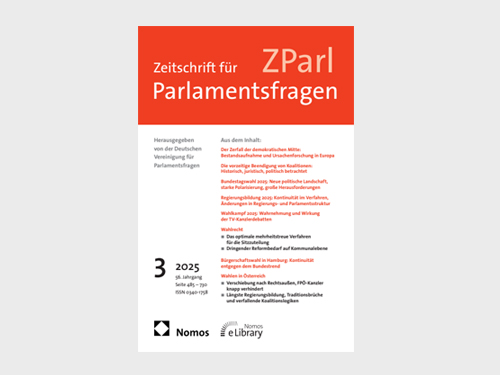
The coalition negotiations after the Austrian National Council elections in 2024 developed into the longest government formation of the Second Republic and led to an oversized three-party coalition of the ÖVP, SPÖ and NEOS for the first time since 1949. Oliver Kannenberg traces the three coalition negotiations chronologically, paying particular attention to the informal practices, party-political blockades and constitutional leeway.
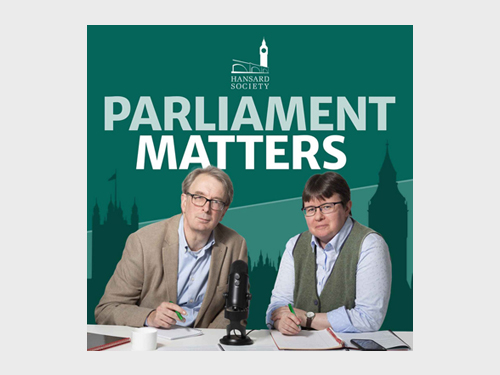
Why do MPs in some countries address their questions to the Prime Minister rather than the relevant minister? In the Hansard Society's 'Parliament Matters' podcast, Dr Ruxandra Serban (UCL) talks about her joint research with Calixte Bloquet on the French National Assembly's experiments with questions to the Prime Minister, as well as her work on Canada, Australia, Ireland and the UK.
Sign up to receive updates, promotions, and sneak peaks of upcoming products. Plus 20% off your next order.